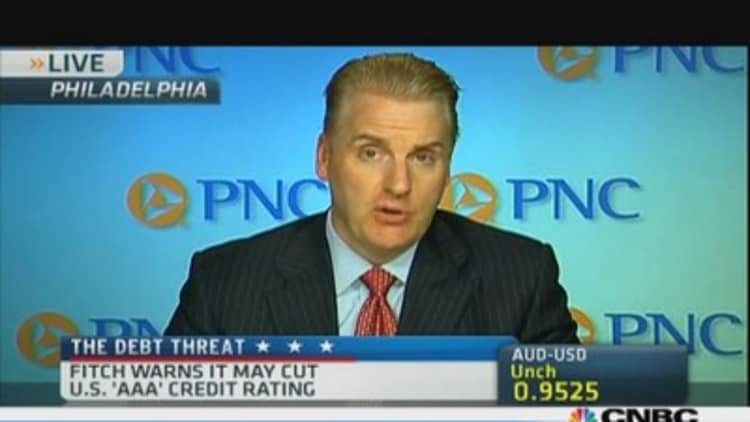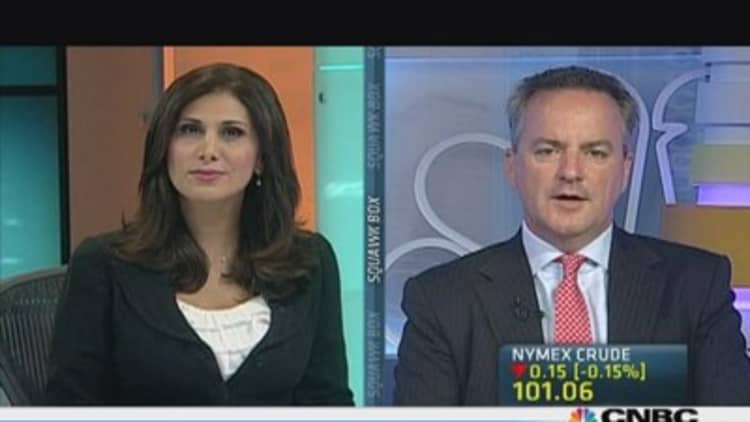Global financial markets are holding out for a deal in Washington to avert a debt default in the world's biggest economy. But that patience could fade quickly if a deal is not reached soon, analysts say.
Talks to end a partial shutdown of the U.S. government and raise the debt ceiling before a looming October 17 deadline stalled once again on Tuesday.
A growing number of voices including the International Monetary Fund and World Bank have warned about the consequences a U.S. default would have on the global economy and on Tuesday Fitch Ratings warned that it could cut the U.S.'s top-notch AAA sovereign credit rating.
(Read more: Fitch puts US AAA rating on negative watch)
"It's interesting that even as we've seen this deadline [Oct. 17] approach, we've not seen quite the degree of strain we would have expected in currency markets," Citi Currency Strategist Todd Elmer told CNBC Asia's "Squawk Box."

"But when we look at other asset markets, in particular the rise in short-term interest rates, those strains are starting to build. And I would expect… over the next 24 hours and the next few days that we could start to see more fall out in the FX markets," he added.
Lawmakers in the U.S. senate could announce a deal soon to extend the government's debt limit until February and re-open the government following a shutdown that began on October 1, Reuters quoted a Senate aide as saying.
(Read more: Washington deadline could be nail biter for markets)
Hopes for an agreement lifted U.S. stock futures and Asian stocks in early Asian trade on Wednesday. The dollar was also slightly firmer against major currencies, trading 0.4 percent higher on the day at 98.53 yen.
Complacency
"I think people really have been too complacent about what's been going on here," said Adrian Mowat, chief Asian and emerging market equity strategist at JPMorgan.
"The Senate and the House are completely split on what their objectives are. It is possible that we get to the end of this week and there is no deal, judging by what is going on in Washington today [Tuesday]," he added.

The U.S. Treasury expects to hit its $16.7 trillion borrowing limit on Thursday, risking the government's ability to pay its bill to its creditors.
(Read more: Relax! Government won't run out of money Thursday)
Analysts say that although the government is expected to have enough funds to keep it going for a while longer, the failure to reach an agreement on the debt ceiling raises the prospect of a debt default and would be a damaging blow to confidence in holding U.S. assets.
Ward McCarthy, chief financial economist at Jefferies, told CNBC that he visited Asia last week and investors there are becoming impatient. "I can attest to a frustration level that has gone from simmering to close to boiling over," he said.
Investor patience could also be tested if any deal pushes back deadlines for agreement on federal spending and the debt ceiling, indicating that the political wrangling of the past few weeks could be repeated in a few months' time.
"When we get a deal it will be pushed through to January 15, where we will debate and try and avoid a new government shutdown, which co-insides with spending cuts that kick in on that same day," said Chris Weston, chief market strategist, at the trading firm IG.
"Then February 7 could be [the deadline] for a new debt limit extension and boom we're back to square one," he added.
— CNBC.Com's Dhara Ranasinghe; Follow her on Twitter @DharaCNBC


